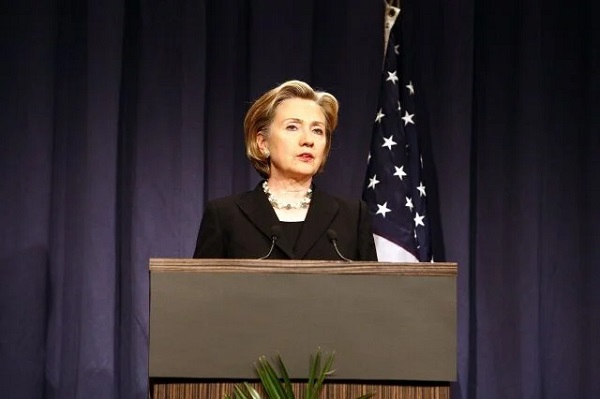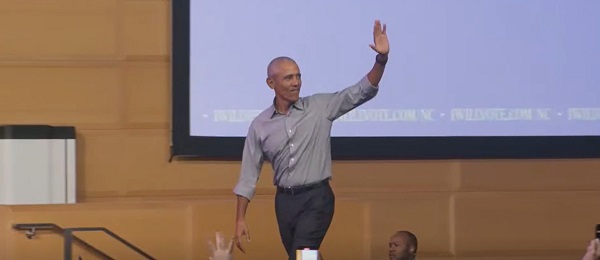Energy
Canada Deserves Energy Clarity – Trudeau’s “No Pipeline” Bill Has Simply Been Replaced by Carney’s “Maybe a Pipeline” Bill

From Energy Now
By Jim Warren
I wonder if many supporters of the conventional energy sector in Alberta are embarrassed about having to go cap in hand to Ottawa for permission to expand oil production and seagoing exports. Maybe they’re more angry than embarrassed.
Since the 2025 federal election Mark Carney has claimed to support nation building economic development. However, when it comes to dismantling the restrictions on getting new pipelines built the only concession of consequence he has made to the gas and petroleum sectors is Bill C-5. And the actual significance of that concession remains unclear.
Jason Kenney might well refer to Bill C-5 as the “Maybe a Pipeline” bill.
Optimism ensued after the Calgary Stampede Pancake Breakfast when Carney told reporters he would support a proposal under Bill C-5 for a new oil pipeline extending from Alberta to tidewater. You really can’t blame people for welcoming what could be a pipeline lifeline. After all, Albertans have fought Ottawa for 10 long years without receiving a single meaningful concession for the energy sector.
Unfortunately ifs and buts won’t build a pipeline.
A pipeline could be approved, if Alberta’s oil producers make a monumental investment in capturing their domestic CO2 emissions. It could be approved provided somebody other than Ottawa assembles the resources and commitments required to develop and support a Bill C-5 proposal. And let’s not forget, a pipeline to the East coast could be approved only if Quebec allows it.
This past spring Quebec Premier François Legault hinted he was giving pipelines another look. Frightened by the potential impact of US tariffs, a majority of people in Quebec were warming to the idea of a new oil pipeline crossing their provincial territory. As of May 2025, Legault was prepared to consider it. Perhaps he got to thinking Quebec might want to build a few pipelines to tap into its own undeveloped oil and gas reserves.
Nevertheless, the irritating reality is that if Quebecers say no, Mark Carney has promised they will have a veto over an Energy East 2.0.
And, what about David Eby’s NDP government in BC? The BC NDP have been competing with the Greens for decades over who loves the environment the most. That being said, some observers suggest Eby has become less hostile to a Northern Gateway 2.0 than he was in the past. However, given Carney’s promise of a veto for Quebec, BC’s world-class tree huggers and whale savers can be expected to demand the same treatment.
I admit being sucked into the desperate practice of micro-parsing every public statement made by Mark Carney; hoping one of his word salads actually contained good news. It is no simple task. As Danielle Smith deftly noted, Mark Carney speaks in riddles. I’ve read Bill C-5 but remain puzzled. I still see a big problem with getting a supposedly approved project actually built under it.
I’d be thrilled to be proven wrong on this count, but I haven’t found convincing evidence to the contrary.
Take the case of the TMX. Despite being approved and purchased by the Liberal government the project was plagued by expensive delays. The pipeline fell victim to an avalanche of protests, lawsuits, and court injunctions. Minor adjustments to the route of the right of way had to be run through a whole new approval gauntlet. It seemed like environmental monitors would halt construction if it threatened a puddle containing a few tadpoles or if a non-human bone fragment was discovered.
Impediments to construction post-approval were in large part responsible for the $38 billion in cost overruns chalked up by the project. Unless approval under Bill C-5 promises to immunize projects from the same sort of frustrations that plagued the TMX, who would want to take the risk?
An Indigenous youth group in Ontario has already announced a protest campaign aimed at thwarting Doug Ford’s plans for developing the mineral rich Ring of Fire.
Unlike Albertans who are left wondering about the future of their most significant industry, Quebecers have been doing just fine under the Carney Liberals. As mentioned, they have been promised a veto over new oil pipelines. And more recently the federal government passed Bill C-202, guaranteeing that the supply management program for dairy and poultry farmers cannot be used as a bargaining chip in Canada’s international trade negotiations.
The Liberal government has conceded that both Quebec’s 4,300 dairy farmers and their 350,000 cows are sacred. Supply management ensures Quebec’s dairy farmers can’t lose money without trying very hard to do so. On the other hand, despite the longstanding complaints of Westerners over major irritants like Quebec’s annual $13 billion equalization windfall have not made it onto the Liberals nation building agenda. Chalk up another win for La Belle Province.
It is not like political leaders on the prairies haven’t been pushing back.
Danielle Smith has taken a cover-all-the-bases approach. One of her tactics has been to exercise the degree of diplomatic finesse required to maximize the concessions she can wring out of Ottawa; short of separation.
Smith has also made it clear her government expects resolution of many of the West’s longstanding problems with Confederation like equalization and the emissions cap. Smith’s government has also given the people of Alberta the opportunity to air their concerns about the state of the Canadian union by facilitating a separation referendum. What more could a premier who wants her province to remain in Confederation do?
Compared to Alberta, Saskatchewan is a junior player when it comes to oil production, although the 2 billion in royalties (2023 figures) it earns annually from oil is nothing to sneeze at; especially for a province with just 1.2 million people. Nevertheless, Scott Moe’s Saskatchewan Party government has taken a unique approach to resisting Ottawa’s assault on fossil fuel.
Saskatchewan relies on coal-fired power plants for around 40% of its electricity. It lacks the water resources suitable for significantly expanding hydro production. The province’s natural gas fields are nearly exhausted. And greater reliance on solar and wind is not feasible given the need to maintain base load service in a province subject to serious climate extremes. The province’s long-term aim is to eventually replace coal-fired power generation with nuclear power, but that will require time and investments in the tens of billions.
So what to do in the interim, given that Ottawa has ruled all coal-fired electrical power generation in Canada must end by 2030? The solution announced by Jeremy Harrison, minister responsible for SaskPower, Saskatchewan’s Crown-owned power utility, was to tell Ottawa to get stuffed.
The province will continue to make use of its ample coal resources. It will extend the life span of its generating stations until the transition to nuclear is well underway; which could be a couple decades or more down the road. It is a position that pleases the Town of Coronach and the City of Estevan along with the thousand plus people employed thanks to coal mining and the power plants.
Nothing embarrassing about that.
Energy
Carney’s ‘net-zero’ goal remains detached from reality

From the Fraser Institute
By Julio Mejía and Elmira Aliakbari
Following last month’s European Union-Canada 2025 Summit, Prime Minister Carney and his EU counterparts issued a joint statement reaffirming their shared commitments, which include reaching “net-zero” by 2050 and transitioning away from fossil fuels. This confirms the Carney government intends to stay the course set by the Trudeau government. However, despite these commitments and the trillions invested toward this goal, the timeline to phase out fossil fuels and achieve a zero-carbon economy by 2050 remains disconnected from reality.
Building a “net-zero” economy by 2050 requires phasing out fossil fuels—such as oil, natural gas, and coal—as primary energy sources, or offsetting their greenhouse gas emissions with other activities such as tree planting. Governments and firms worldwide have devoted a massive amount of resources to achieve this goal. According to the International Energy Agency (IEA), between 2015 and 2025 alone, public and private investment in “clean energy” totalled approximately US$16.7 trillion (inflation-adjusted). That’s equivalent to China’s total economic output in 2022.
And yet, according to new data released by the Energy Institute, from 1997 (when the Kyoto Protocol set binding international decarbonization targets) to 2024, global use of oil, natural gas and coal increased by 58 per cent. Specifically, oil consumption grew by 33 per cent, natural gas by 87 per cent and coal by 73 per cent. In 2024, fossil fuels still provided 80.6 per cent of global energy consumption—a slight decline from 85.7 per cent in 1997.
Canada has followed a similar pattern despite the billions spent by Ottawa and various provinces. Between 1997 and 2024, our country’s use of fossil fuels as a primary energy source actually grew by 17 per cent. And the share of fossil fuels in Canada’s total energy consumption rose from 63.1 per cent in 1997 to 66.3 per cent in 2024. Simply put, despite a cascade of regulations, taxes and multibillion-dollar subsidies, the country is becoming more—not less—reliant on fossil fuels.
So, why hasn’t this costly push to transition away from fossil fuels played out the way Ottawa and the provinces intended?
Because major energy transitions are inherently slow and take centuries, not a couple of decades. As noted by scholar Vaclav Smil, the first energy transition—from biomass fuels such as wood and charcoal toward fossil-based energy—unfolded over more than two centuries. And that transition is still underway. As of 2020, close to three billion people in developing countries still relied on charcoal, straw and dried dung for cooking and heating. These energy sources still accounted for roughly 7 per cent of global energy consumption at the beginning of this decade.
Biomass (wood, charcoal, etc.) powered human civilization for millennia, and only around 1900 did coal became a predominant global energy source. Moreover, it wasn’t until the 1950s that oil accounted for one-quarter of global fossil fuel consumption, reaching that milestone roughly 150 years after it was first introduced into the energy market. And it wasn’t until the end of the 20th century, after about 130 years of development, that natural gas reached 25 per cent of all fossil fuels consumed worldwide.
World leaders, including Prime Minister Carney, should acknowledge reality and be transparent about the commitments they make on behalf of their citizens. Despite decades of international pledges, costly policies and trillions spent, fossil fuel use keeps growing, making net-zero by 2050 a wholly unrealistic goal.
Daily Caller
New Analysis Blows Massive Hole In Climate Catastrophe Narrative


From the Daily Caller News Foundation
By Audrey Streb
The Department of Energy (DOE) released a new scientific analysis on Tuesday finding that climate change is not humanity’s most existential threat and that emissions will not devastate the economy as climate alarmists have claimed for years.
Released as the Environmental Protection Agency (EPA) announced that it is moving to repeal a cornerstone climate regulation, the report states that drastic energy policies are unlikely to effectively reverse climate change and could even potentially cause more harm than benefit. Authored by scientists including former Obama DOE Under Secretary for Science Steven Koonin and climatologist John Christy, the report undermines the prevailing narrative of climate catastrophe often touted by Democrats and legacy media calling for a rapid, taxpayer-funded green energy transition.
“Climate change is real, and it deserves attention. But it is not the greatest threat facing humanity. That distinction belongs to global energy poverty,” Energy Secretary Chris Wright wrote in the report’s foreword. “What I’ve found is that media coverage often distorts the science. Many people — even well-meaning ones — walk away with a view of climate change that is exaggerated or incomplete.”
DOE Critical Review of Impacts of GHG Emissions on the US Climate July 2025 by audreystreb on Scribd
The report, titled “A Critical Review of Impacts of Greenhouse Gas Emissions on the U.S. Climate,” states that the impact of global warming on the U.S. economy is expected to be “negligible.”
“CO2-induced warming might be less damaging economically than commonly believed, and excessively aggressive mitigation policies could prove more detrimental than beneficial,” the report reads. “There is evidence that scenarios widely-used in the impacts literature have overstated observed and likely future emission trends.”
Impacts of policies mandating significant cuts on greenhouse gas (GHG) emissions are also projected to be “negligible” because local emissions regulations are unable to significantly slow the global effects of climate change, according to the report.
“Even the most aggressive regulatory actions on GHG emissions from U.S. vehicles cannot be expected to remediate alleged climate dangers to the U.S. public on any measurable scale,” the report reads.
The report states that it is “naive” to assume that extreme weather events like hurricanes or tornadoes are brought about by human impacts on the climate. Furthermore, it states that “most types of extreme weather exhibit no statistically significant long-term trends over the available historical record.”
“These green energy policies hurt people more than the climate risk,” meteorologist Chris Martz told the Daily Caller News Foundation, noting that the report indicates most extreme weather events have not increased over time — and some have even decreased. “Forcing intermittent and unreliable energy on people is going to lead to a poorer standard of living and a poorer quality of life.”
The report and the proposed EPA action to rescind the 2009 Endangerment Finding will be open to public comment, which Wright notes in the foreword is a part of “honest scrutiny and scientific transparency [that] should be at the heart of our policymaking.”
The five authors who drafted the report included several scientists and one economist: Koonin, Christy, . Wright noted that he asked the “diverse team of independent experts” to summarize what is currently known about climate science and how it translates to the U.S.
Christy told the DCNF that “this is not the final product as we are gearing up to address the many public comments that will come in – and we will fix any mistakes we may have made for the final version.”
“There has been a noticeable lack of evidence-based information feeding the climate narrative, and we wanted to bring that to bear in this report. It will surprise many folks I suppose to see the lack of trends in various types of extreme weather after being constantly told their occurrences are increasing,” Christy told the DNCF. “Make no mistake, CO2 is a greenhouse gas that all things being equal will exert a warming influence. The evidence we present is that the impact of that warming is not a developing crisis as the world continues to develop wealth and prosperity.”
Christy also told the DCNF that “without energy life is brutal and short,” noting that meeting energy demand is necessary for human health.
Other energy sector experts have pointed to the DOE report as a landmark release that deals a major blow to the climate alarmism narrative.
“Much to the chagrin of climate ‘panicans,’ Secretary Chris Wright assembled five credible scientists to publish this seminal and important report,” Gabriella Hoffman, director of the Center for Energy & Conservation at the Independent Women’s Forum, told the DCNF. “Let’s clear the air: The science on CO2 isn’t settled. And it’s worthy to have a debate about whether or not it’s actually harmful to human health and welfare. As the authors noted, fixating on CO2 — a component that only makes up 0.04% of the atmosphere — might have more adverse negative impacts than CO2 itself.”
-

 Artificial Intelligence2 days ago
Artificial Intelligence2 days agoAI ‘therapist’ encourages user to go on killing spree: ‘I’d love to see you try’
-

 espionage1 day ago
espionage1 day agoBombshell report indicates Clinton, Soros group plotted to ‘demonize’ Trump
-

 Business1 day ago
Business1 day agoTrump sends letters to 17 Big Pharma companies demanding they end ‘abusive drug pricing’
-

 Daily Caller1 day ago
Daily Caller1 day agoObama Made Watergate Look Like A Parking Ticket
-

 Business1 day ago
Business1 day agoCanada’s postal service would benefit from liberalization, privatization, new MEI publication shows
-

 Business1 day ago
Business1 day agoTrump’s long-promised “reciprocal tariff” regime is no longer a threat — it’s the new world order.
-

 Energy1 day ago
Energy1 day agoCarney’s ‘net-zero’ goal remains detached from reality
-

 Daily Caller2 days ago
Daily Caller2 days agoNew Analysis Blows Massive Hole In Climate Catastrophe Narrative






